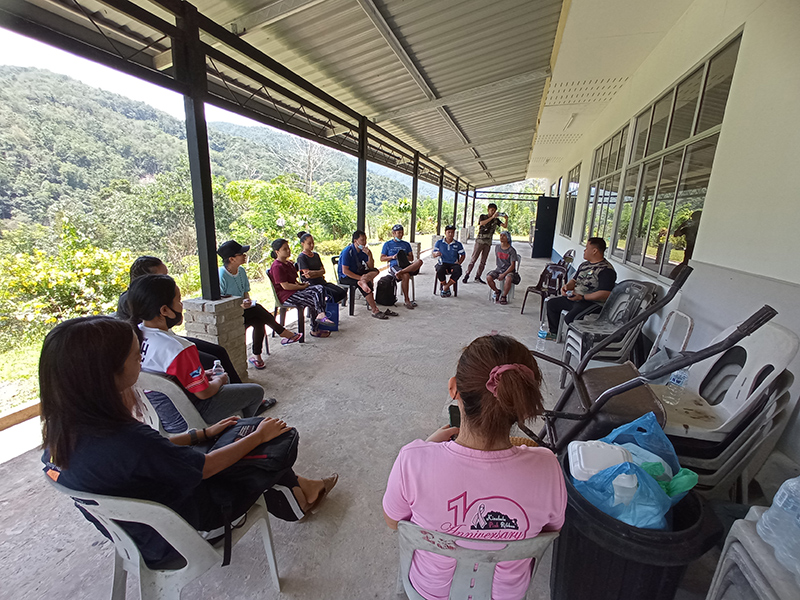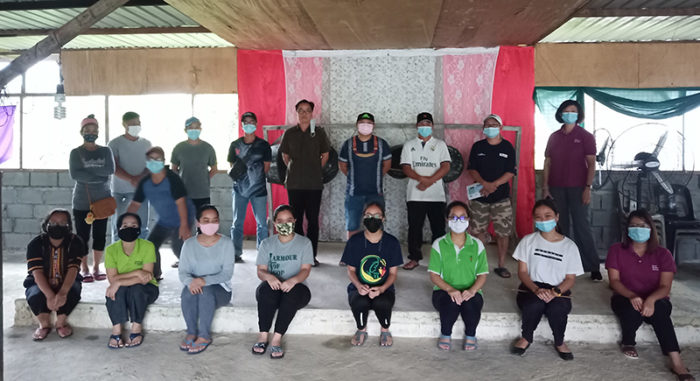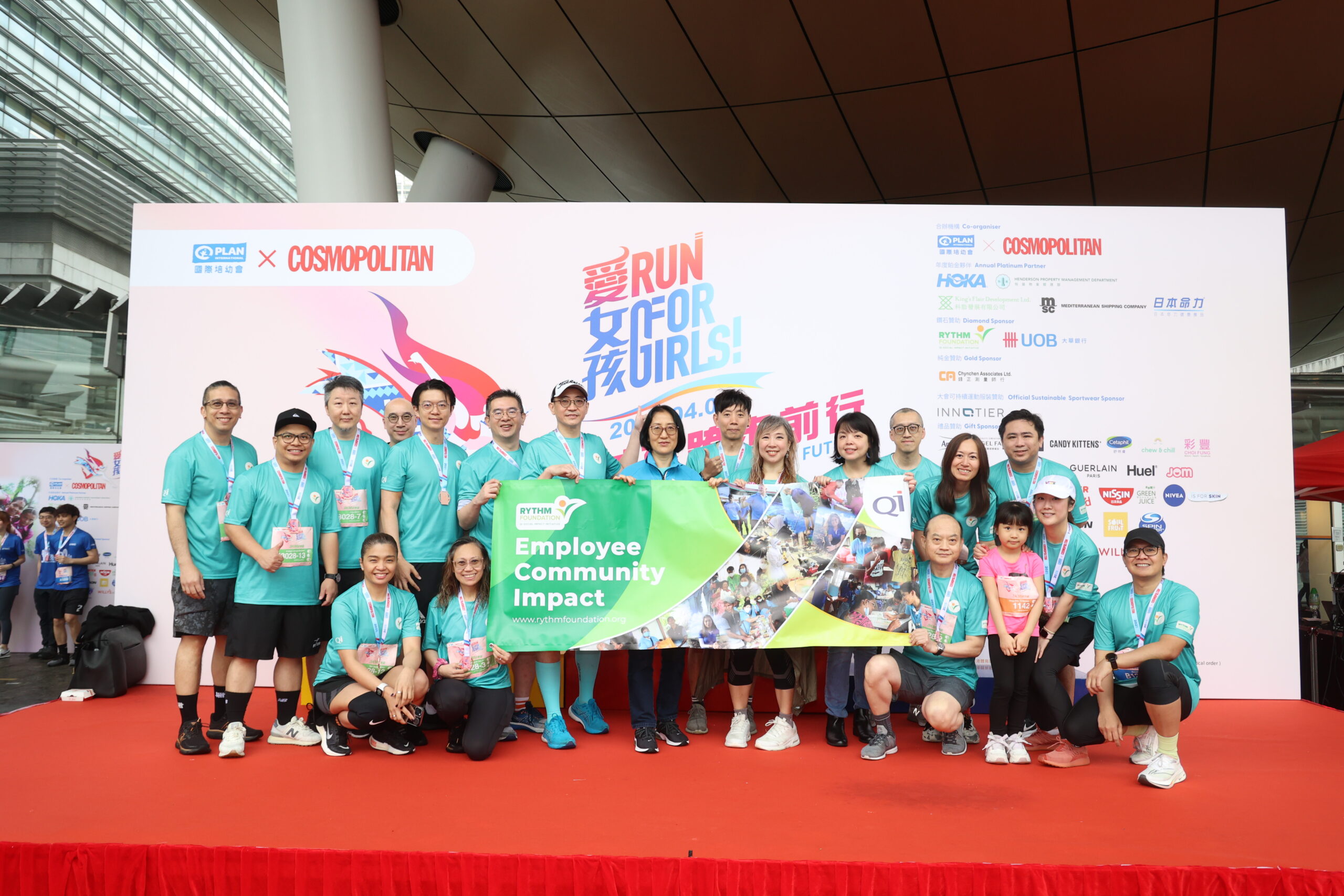Head of RYTHM Foundation, Santhi Periasamy shares, “While impoverished populations are spread across Malaysia, Sabah could stand to benefit the most from community support. So, we decided to start here since we had not engaged in any initiatives in East Malaysia and our partner organisation was already known to us through our network. After meeting them and finding out about their work, we were convinced that they would be the best entity to work with.”The partner, Good Shepherd Services is a non-profit organisation that has been working on projects aimed at improving the livelihood of rural communities since 1956. After the first lockdown in Malaysia due to COVID last year, Good Shepherd initiated an academic support programme by offering tuition classes to students in these communities. Tracy Soidi, a senior programme officer of Good Shepherd says: “We saw a need because online classes cannot be conducted in these areas due to poor and unstable internet connection in some parts of the villages. Most of the children also do not own their own devices and have to depend on family members who have smartphones. So, when the schoolteachers were giving students worksheets, we saw that tuition classes could be helpful.” The organisation’s education initiative eventually evolved into a full-blown Community Adoption Programme which kicked off in April this year, propelled by its newfound partner, RYTHM Foundation. The programme is a three-year commitment with the goal of transforming the living standards of three villages – Kampung Lokub, Kampung Ratau and Kampung Talantang in the Kiulu region of Sabah. RYTHM Foundation’s maiden project in the region focuses on academic support for primary school students and a youth development programme to empower young people with life and business skills.

The academic support programme kicked off in April this year.
The academic support initiative is focused on raising literacy rates within the communities and the syllabus is curated to complement the students’ school curriculums based on suggestions from their teachers. Good Shepherd also trains the tutors who are primarily youth who have just completed their secondary school education and women from within the community itself. This not only provides the youth with an opportunity to enhance skills and add on work experience, it also ensures the safety of the villagers while adhering to the lockdown standard operating procedures (SOPS).Soidi says, “The facilitators have a different approach to teaching and the students are excited to learn from them because they are familiar with the tutors. It’s like having an older sister teach them. Having been in and out of school in the past two years due to COVID, these classes also give the students the opportunity to feel the classroom environment and they are excited to learn with their friends.”These sentiments are echoed by 11-year-old Ain Farah Syazwani binti Wahid, a student of the programme who dreams of becoming an astronaut someday. She says, “I enjoy attending the tuition classes because it is fun. I learn a lot and we get to play games while learning. The tutors are instructive and guide me when I don’t understand anything.” The project is wholly supported by the students’ parents who have seen the children’s enthusiasm and improvement in their academic performance. In fact, the parents have also contributed ideas and have long-term plans to ensure the sustainability of the programme. They have even banded together to form a committee to assist in the organisation and monitoring of the classes.

Parents of the students formed a committee to keep the classes going.
The second facet of the RYTHM-Good Shepherd collaboration is the youth development initiative, which started with focus groups aimed at gathering information about the interests of the youth from the three villages. This also included recce trips to explore resources and identify areas with the most potential for building their businesses.
Recce briefings in Kampung Ratau, one of the three villages the youth development programme is focused on supporting.
From planting chilli, cocoa and padi to rearing frogs and fish, the business proposals have been flowing through the initial ideation stage. Although their face-to-face sessions were halted by the MCO, the youth have been actively engaging in discussions about their ideas and plans through a WhatsApp group set up by Good Shepherd. “Even though agriculture and ecotourism are common, it is new to the youth, and they believe in the potential of their villages. The idea of working with other young people to start a business excites them because they have an opportunity to create something new and help their villages and communities,” says Soidi.
The youth have been brainstorming ideas for potential business ventures in their villages.
Good Shepherd is in the midst of curating team building activities that can be conducted via Whatsapp and is establishing a committee, the Youth Connect Circle (YCC), in an effort to hit the ground running within current constraints. Good Shepherd also plans to provide seed money for the proposals with the most potential.19-year-old youth Ivy Andrea Unus who hopes to someday shine a spotlight on the traditional food and handicrafts native to Sabah says, “Opportunities to join such programmes are rare and there is a lot to learn about building and running successful businesses. Perhaps we can raise awareness within our communities about the importance of business knowledge through our success and inspire our communities to be daring to take on entrepreneurial opportunities.”Over the course of RYTHM Foundation’s three-year pledge to improve livelihoods in these three villages in Kiulu, the community adoption programme will expand to include preschool support, women’s entrepreneurship, and social entrepreneurship skills by building upon the current efforts. “The Community Adoption Programme is a good start for RYTHM Foundation to start putting down roots in Sabah. We are excited and grateful because through this new collaboration, we have been able to expand the programme to other groups within these three villages. We hope it will open up more possibilities for collaboration with RYTHM Foundation and an exchange of expertise and knowledge that can benefit many more communities to reach out to here. At the end of the day, it’s not just about giving us money, it’s about empowering these communities to be resilient and sustainable in all areas and building their trust,” says Soidi.





